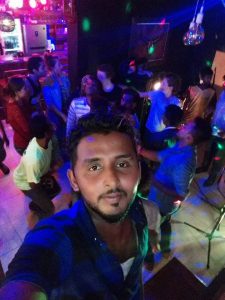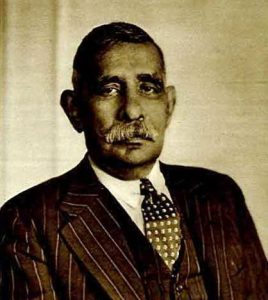Sri Lanka is Open for Business
 Lanka4me.com along with other tour companies has seen a huge decrease in future bookings taken, due to the Sri Lankan government giving incomplete and inacurate press statements to the worldwide media.
Lanka4me.com along with other tour companies has seen a huge decrease in future bookings taken, due to the Sri Lankan government giving incomplete and inacurate press statements to the worldwide media.
We would like to assure all our current guests and future guests that the unrest, which was only in 2 very small villages on the outskirts of Kandy has dispersed and only lasted a few days. Even the main tourist destination of Kandy was not affected even though they had to tolerate a curfew.
Therefore Sri Lanka is SAFE and is OPEN FOR BUSINESS.
On the 6th March 2018 the Sri Lankan government issued the following statement:
“Sri Lanka has declared a state of emergency for 10 days”
A curfew was in place in the central district of Kandy, where crowds from the Buddhist Sinhala majority attacked a mosque, Muslim-owned shops and homes.
The authorities feared retaliation after a young Muslim man’s body was found in a burnt-out building. Tensions flared after the death of a Buddhist man who was said to have been beaten by some Muslims.
“Four mosques, 37 houses, 46 shops and 35 vehicles damaged in the small non tourist towns of Digana and Teldeniya (which are on the outskirts of Kandy) due to the mob attack,”
Social Media
Upon this same day the Sri Lankan government decided to block social media sites such as Faceboook, Whats App and Viber for a period of 72 hours in order to dull the amount of fake news being shared on social media and to halt the communication between the gangs, or rumours that instill a fear psychosis or a threat to communal harmony.
4 days later the Instant Messaging sites we reinstated but at the time of writing, which is 6 days later, Facebook is still blocked within Sri Lanka. Most users of smart phones have installed VPN’s in order to overcome this problem.
So Why Go To Sri Lanka? What’s So Great About It?
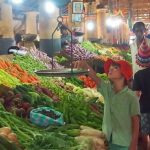
The people!
Don’t take our word for it, read a blog post from one of our recent guests who were staying in Hikkaduwa and travelled around the island, this month.
It started on the plane, we flew Sri Lankan Airways.
The cabin crew who greeted us were beautiful smiling ladies in peacock saris proudly displaying luscious, brown, rounded midriffs. You’ve got to love a nation that doesn’t need to hide it.
Sri Lankan women are spectacularly gorgeous, all glossy black wavy hair, tropical colours and lovely smiles furnished with amazing white teeth.
It doesn’t stop when you get off the plane. Wherever we go we are greeted by genuine, warm smiles, of greeting. Even the men do it. After 4 hours on a local bus, with flu, I got off with a song in my heart and just one thought.
” These people are fantastic!!”
I have never seen such concern for strangers. Every time someone less able to stand boarded our bus, chairs would be shuffled. There was a hierarchy of seat-needyness. The elderly were immediately offered seats, so were mothers with babies or children, so were older, and then younger, women. It was a joy to see. If the young woman preferred to stand then a seated gentleman would take her bags on his lap. Total trust, nobody was worrying about theft at all. Call me old fashioned, but it was wonderful to see.
Manners aside, the buses themselves are a joy. Glittering lights and music turn every bus ride into a special occasion. No blaring techno or horrible elevator music, just lovely Sri Lankan tunes played at just the right volume to be enjoyable, even to us. Maybe the Sri Lankans are sick to death of the same tunes every day on their way to work, but we think it’s cool.
The bus drivers and conductors are friendly and helpful. They don’t try to rip us off, they take the correct money and tell us when to get off. Sometimes they will go out of their way to drop us exactly where we need to be dropped.
It’s Not Just The People
The natural environment is spectacular. Huge powerful waves pound the pristine shore. Dense rain forests appear just a few meters back from the coast road and there are the cool hill country tea plantations waiting for us to explore.
The wildlife is incredible, so much diversity! Leopards, elephants, ginormous monitor lizards, marine turtles, even blue whales.
It’s all here!
Sri Lanka is the only place I have ever seen a wild sea turtle laying her eggs on the shore. It was magical.
You have the co-existence of Hindu, Buddhist, Christian and Buddhist faiths, the historic buildings, temples, forts and markets. Sri Lanka is immensely rich in history and culture.
Then stop and consider the recent past. A war ( 80-100, 000 deaths ) and a tsunami ( over 30,000 deaths) devastated this country in my living memory and still, these people are the friendliest and most welcoming that I can think of. I’ve travelled so wide and so far, and I really think that this is a good as it gets.Jan Verspoor and family – The Netherlands – March 2018
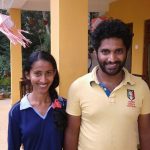
 Preparation for this great day begins weeks before, as in any other country. The festive sound or annoying sound of fireworks waking you up at dawn every morning of December is the first intimation that Christmas is round the corner.
Preparation for this great day begins weeks before, as in any other country. The festive sound or annoying sound of fireworks waking you up at dawn every morning of December is the first intimation that Christmas is round the corner.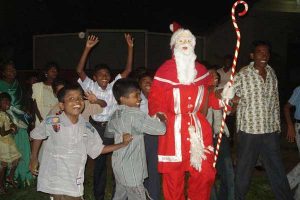 The festivity spreads through all shopping centres all over the island. Even the small wayside boutiques in the heart of the country come out with their small festive décor.
The festivity spreads through all shopping centres all over the island. Even the small wayside boutiques in the heart of the country come out with their small festive décor. 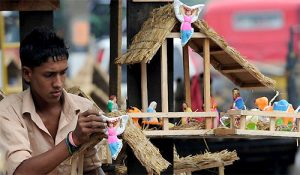 Should you opt for a tropical Christmas in Sri Lanka, you can be sure that it will be a most memorable one with all the trimmings of the festive season. Take your pick out of all the scenic locations Sri Lanka has to offer, and celebrate Christmas there. All Hotels indulge their guests with a fantastic Christmas spread, carols, dancing and other seasonal activities. It will be just like home but with a number of new experiences thrown in.
Should you opt for a tropical Christmas in Sri Lanka, you can be sure that it will be a most memorable one with all the trimmings of the festive season. Take your pick out of all the scenic locations Sri Lanka has to offer, and celebrate Christmas there. All Hotels indulge their guests with a fantastic Christmas spread, carols, dancing and other seasonal activities. It will be just like home but with a number of new experiences thrown in. 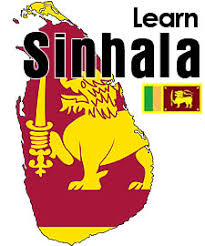
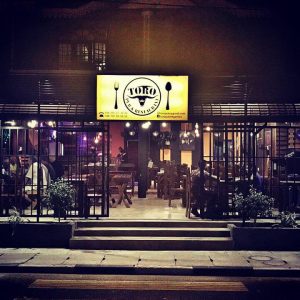 That is what happened with a new bar and restaurant named Toro (which is Spanish for bull) ideally located opposite the Jetwing Sea hotel in Palagathura which is Negombo Beach North.
That is what happened with a new bar and restaurant named Toro (which is Spanish for bull) ideally located opposite the Jetwing Sea hotel in Palagathura which is Negombo Beach North. Toro Bar & Restaurant has only been opened for about 4 months but is already established itself as one of the top venues in Negombo due to its great food, unique and imaginative menu, good value, great bar service and cocktails and friendly welcoming service.
Toro Bar & Restaurant has only been opened for about 4 months but is already established itself as one of the top venues in Negombo due to its great food, unique and imaginative menu, good value, great bar service and cocktails and friendly welcoming service.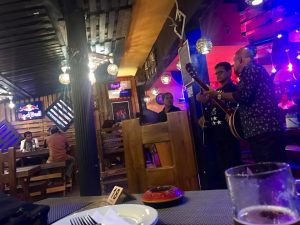 The atmosphere is friendly, mixed and there’s always great music and every Friday you can expect live music and feel free to dance if you want, there is plenty of room.
The atmosphere is friendly, mixed and there’s always great music and every Friday you can expect live music and feel free to dance if you want, there is plenty of room. The menu is a mixed of Sri Lankan and Western and can be suitable for everyine including vegetarians and vegans. Steak Panini sandwich, (700 LKR) Prawn & Avacado wrap,(600LKR) Beer batter fish with home made chips and salad, (950 LKR), Freshly made pizzas, Seafood. Chop Suey and even delicious Traditional Sri Lankan rice and curry. The menu has been devised by Krishan and Chanaka and their joint vast experience is shown in their dishes and presentation.
The menu is a mixed of Sri Lankan and Western and can be suitable for everyine including vegetarians and vegans. Steak Panini sandwich, (700 LKR) Prawn & Avacado wrap,(600LKR) Beer batter fish with home made chips and salad, (950 LKR), Freshly made pizzas, Seafood. Chop Suey and even delicious Traditional Sri Lankan rice and curry. The menu has been devised by Krishan and Chanaka and their joint vast experience is shown in their dishes and presentation.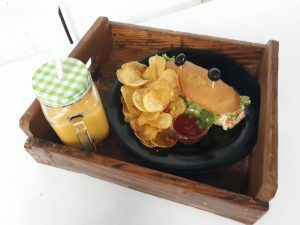 The owner Krishan is very proud of his new venue. If you ask to see the kitchen he will be delighted to show it to you. Here you will find one of the largest and cleanest kitchens in the country. Very impressive and offers peace of mind about the food.
The owner Krishan is very proud of his new venue. If you ask to see the kitchen he will be delighted to show it to you. Here you will find one of the largest and cleanest kitchens in the country. Very impressive and offers peace of mind about the food.